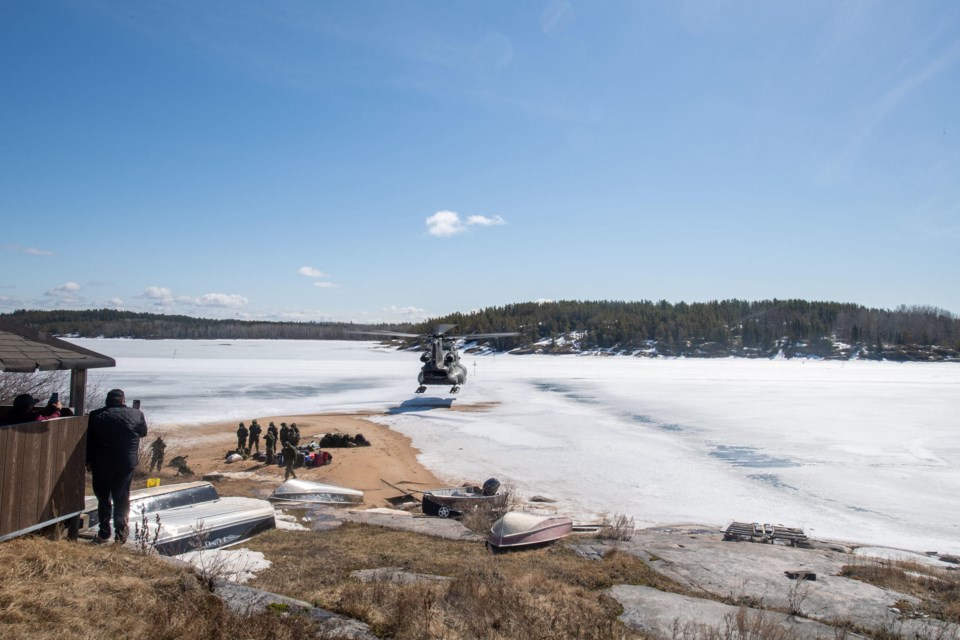Canadian Armed Forces Operation Vector has assisted 11 remote and isolated Northern Manitoba First Nations to deliver first doses of COVID-19 vaccines to their members, Indigenous Services Canada said in a May 5 update on the pandemic among Indigenous Peoples and communities.
In the last two weeks, the military has worked alongside community healthcare professionals to deliver vaccines and conduct community outreach in Barren Lands First Nation, O-Pipon-Na-Piwin Cree Nation and Northlands Denesuline First Nation and expects to assist second-dose vaccination clinics in Nisichawayasihk Cree Nation and Pauingassi First Nation this week.
Announced and commenced in late March, Operation Vector has seen as many as 200 military personnel deployed to a staging area at the Thompson Airport with the goal of helping First Nations deliver 100,000 vaccinations in 100 days. Equipment supporting the mission includes a C-130 Hercules military transport aircraft, up to two Chinook and two Twin Otter helicopters and other military vehicles.
Duties performed by Canadian Armed Forces members include co-ordinating the delivery of supplies, administering vaccines to patients and transporting community members to and from clinics where required
Prior to Operation Vector, the armed forces assisted more than 50 northern and Indigenous communities to cope with the COVID-19 pandemic, providing assistance at Rod McGillivary Memorial Care Home in The Pas, as well to Shamattawa First Nation, Pauingassi First Nation, Opaskwayak Cree Nation, Red Sucker Lake, Garden Hill First Nation, Cross Lake and Mathias Colomb Cree Nation in Manitoba. This assistance has included contributions from the Canadian Rangers, who serve in more than 200 communities across Canada.
As of May 4, 391,983 vaccine doses have been administered in 687 First Nations, Inuit and territorial communities, Indigenous Services Canada says, estimating that, based on Statistics Canada’s 2020 population projections, 63 per cent of adults in First Nations communities and 73 per cent of adults in the territories have received at least one dose of COVID-19 vaccine.
Indigenous Services Canada said that as of May 4 it was aware of 27,564 confirmed positive COVID-19 cases in First Nations since the pandemic began, 732 of which remained active. Recoveries number 26,513 and there have been 319 deaths related to the virus among First Nations people.




